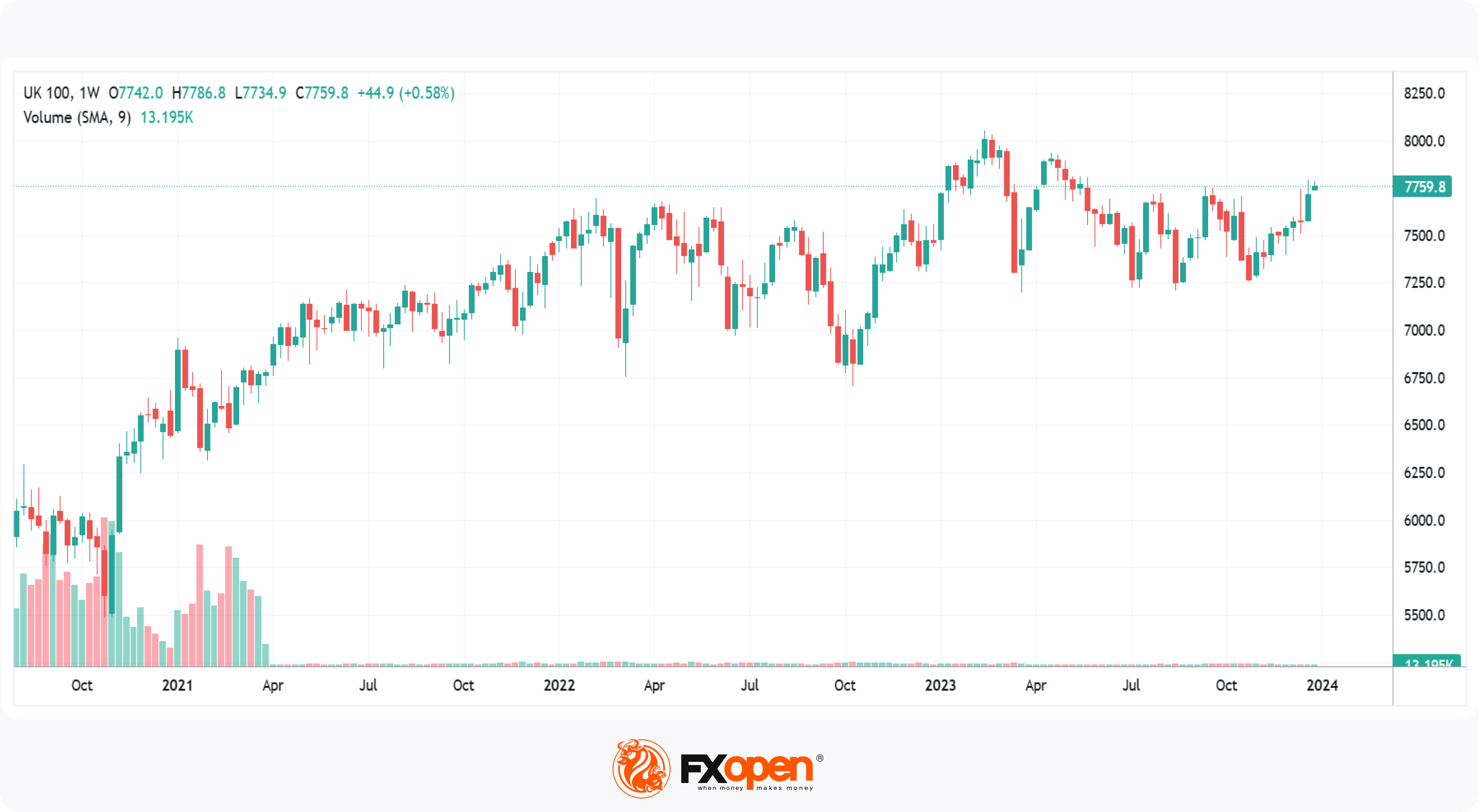Almost eleven months ago, the FTSE 100, a prestigious index featuring top blue-chip stocks listed on the London Stock Exchange, made history by breaching the 8,000-point mark for the first time.
The exhilaration accompanying this milestone in mid-February 2023 mirrored the excitement of 2021 when the index surpassed the 7,000 mark. However, the venture above 8,000 was short-lived, and throughout the last three quarters of the year, the FTSE 100 meandered between the mid-7,200 and the 7,700s.
Ahead of the holiday season break, the FTSE 100 exhibited a steady upward climb, a trend that began on October 27 at its low point of 7,259 at FXOpen. Breaking free from the volatility that defined much of 2023, the steady ascent continued until the festive holiday hiatus.
As markets reopen this week, the FTSE 100’s upward trajectory persists, prompting discussions among market participants about the potential return to the 8,000-point mark.
As the London trading session commenced today, the FTSE 100 surged from 7,715 to 7,742 at FXOpen, reinforcing last week’s mainstream media speculations about a possible return to 8,000.
Analysts attribute this rally to the simple premise that central banks in Western continents, where the headquarters of FTSE 100-listed companies reside, might consider reducing interest rates. The talks about ending the prolonged policy of rate increases, aimed at countering inflation over recent years, may be a key driver. While inflation has been on the decline in Europe and North America, central bankers have maintained a stringent approach, continuing rate hikes. Investors and corporations, cautious about rising monthly commitments, are watching for potential rate reductions, leading to increased disposable income for corporate growth and fueling speculation about the FTSE 100 surpassing 8,000.
However, this narrative oversimplifies the situation. Unlike the tech-centric NASDAQ in New York, the FTSE 100 is a traditional index featuring well-established corporate giants with a focus on less volatile, brick-and-mortar sectors. Banks, construction companies, entertainment giants, telecommunications firms, and retail and supermarket conglomerates form the backbone of this index. These sectors have performed reasonably well in the UK, contributing to the stability of the British economy. The absence of major banking crises or near misses with national debt ceilings, combined with the resilience of the British workforce, paints a picture of strength for one of the world’s largest economies.
The current ascent of the FTSE 100 is intriguing. Whether it will indeed breach the 8,000-point mark in early 2024 remains uncertain, and tracking its progress is the only way to find out. As the new year unfolds, the FTSE 100 becomes a barometer of economic resilience, providing insights into the evolving landscape of the UK’s financial markets.
FXOpen offers spreads from 0.0 pips and commissions from $1.50 per lot. Enjoy trading on MT4, MT5, TickTrader or TradingView trading platforms!
This article represents the opinion of the Companies operating under the FXOpen brand only. It is not to be construed as an offer, solicitation, or recommendation with respect to products and services provided by the Companies operating under the FXOpen brand, nor is it to be considered financial advice.













